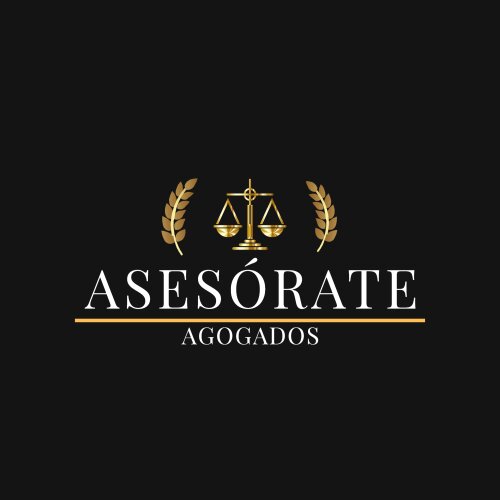Best Toxic Mold Lawyers in Bogota
Share your needs with us, get contacted by law firms.
Free. Takes 2 min.
List of the best lawyers in Bogota, Colombia
About Toxic Mold Law in Bogota, Colombia
Toxic mold is a growing concern in Bogota, Colombia, especially in buildings affected by high humidity, poor ventilation, or water damage. Toxic mold can have severe health impacts, such as respiratory issues, allergies, and other chronic conditions. As public awareness of indoor air quality grows, the legal framework around toxic mold is becoming increasingly important for both tenants and property owners. Understanding your rights and obligations under Colombian law is essential when facing a toxic mold issue.
Why You May Need a Lawyer
Legal assistance can be crucial when dealing with toxic mold situations in Bogota. Here are some common scenarios where people seek legal help:
- A tenant discovers mold in a rented apartment and is experiencing health issues but the landlord refuses to take action.
- A property owner receives complaints from tenants about possible mold but is unsure of their legal responsibilities.
- An individual suffers severe health complications they believe are caused by toxic mold and wants to seek compensation.
- A business faces claims from employees or clients regarding exposure to mold on their premises.
- Insurance companies deny claims related to mold damage, leaving property owners or tenants with unexpected costs.
In these and similar cases, a lawyer with experience in toxic mold law can advise you of your rights, help you gather evidence, negotiate with the other party, and represent you in front of authorities or courts if necessary.
Local Laws Overview
In Colombia, issues related to toxic mold are governed by a combination of civil, health, housing, and environmental regulations. Important aspects to know:
- Landlords are required to provide tenants with habitable living conditions under Colombia’s Civil Code. This includes ensuring that rental properties are free from health hazards like toxic mold.
- The Ministry of Health sets guidelines for building health and safety, which property owners must comply with. Mold resulting from neglect or poor maintenance can be regarded as a violation.
- Municipal regulations in Bogota, enforced by local health authorities, may require landlords or property managers to address complaints about mold promptly.
- Tenants have the right to request inspections from local health departments if they suspect a mold problem is affecting their well-being.
- Civil lawsuits can be filed if someone is harmed by toxic mold and the responsible party failed to take appropriate actions to prevent it.
- Insurance policies may or may not cover mold damage, so it is important to review your contract and understand the exclusions.
Understanding these local laws is vital to protect your interests if you face a toxic mold issue in Bogota.
Frequently Asked Questions
What are the health risks associated with toxic mold?
Toxic mold exposure can cause allergic reactions, respiratory issues, skin irritation, headaches, and more severe health problems for sensitive groups like children, the elderly, or those with weakened immune systems.
Who is responsible for removing toxic mold in a rented property?
Typically, landlords are responsible for maintaining safe, habitable conditions, including addressing toxic mold caused by leaks, poor maintenance, or other issues not caused by the tenant.
Can I break my lease due to toxic mold?
If your landlord fails to fix a mold problem that makes the premises unsafe, Colombian law allows for the possibility of breaking the lease without penalty, but legal advice is recommended before taking action.
How can I prove that toxic mold caused my health problems?
Medical documentation and expert evaluations, such as indoor air quality assessments, can help establish a link between your symptoms and mold exposure. A lawyer can advise on gathering this evidence.
Is my landlord obligated to disclose past mold issues?
There is no explicit law requiring landlord disclosure of past mold problems, but they must ensure current habitable conditions. Failure to address known issues can be grounds for legal action.
Can I get compensation for property damaged by mold?
If the landlord or another party is negligent, you may be entitled to compensation for property losses due to mold. This often involves proving that the damage resulted from their failure to maintain the property.
Does my insurance cover mold damage?
Coverage depends on your policy. Some insurance contracts cover sudden mold outbreaks linked to covered events, while others specifically exclude mold-related damages. Review your policy carefully.
What should I do if I find mold in my workplace?
Report the situation to your employer and occupational health authorities. Employers must provide a safe work environment, and failure to address mold can result in sanctions and potential legal claims.
How long do I have to file a lawsuit related to toxic mold?
Time limits, or statutes of limitation, vary depending on the type of claim but are often between one and five years. Consult a legal professional to understand the specific timeframe for your case.
What evidence do I need for a toxic mold case?
Key evidence includes photographs, medical reports, expert evaluations, maintenance records, and any correspondence regarding the mold problem. A lawyer can help you organize and present your case effectively.
Additional Resources
Several institutions and organizations can assist those facing toxic mold issues in Bogota:
- Secretaría Distrital de Salud (District Health Department) - Handles complaints and inspections related to health hazards in buildings.
- Superintendencia de Industria y Comercio (SIC) - Assists with consumer complaints, including property rental disputes.
- Ministerio de Vivienda, Ciudad y Territorio - Provides information on housing standards and tenant rights.
- Legal aid organizations in Bogota - Offer affordable or free legal support for low income individuals.
- Environmental consulting firms - Provide expert testing and reports on mold presence.
Next Steps
If you suspect you have a toxic mold issue or have suffered harm:
- Document the problem with photos, videos, and written records.
- Seek medical evaluation if you experience health symptoms.
- Notify the responsible party in writing, such as your landlord or employer, giving them an opportunity to respond.
- Contact local health authorities or request an official inspection if the problem is not resolved promptly.
- Consult with a lawyer specialized in housing or environmental law to understand your rights and determine your legal options.
- If necessary, consider formal legal actions or mediation to resolve the dispute.
Acting quickly and following the appropriate steps can help protect your health, property, and legal rights when dealing with toxic mold in Bogota, Colombia.
Lawzana helps you find the best lawyers and law firms in Bogota through a curated and pre-screened list of qualified legal professionals. Our platform offers rankings and detailed profiles of attorneys and law firms, allowing you to compare based on practice areas, including Toxic Mold, experience, and client feedback.
Each profile includes a description of the firm's areas of practice, client reviews, team members and partners, year of establishment, spoken languages, office locations, contact information, social media presence, and any published articles or resources. Most firms on our platform speak English and are experienced in both local and international legal matters.
Get a quote from top-rated law firms in Bogota, Colombia — quickly, securely, and without unnecessary hassle.
Disclaimer:
The information provided on this page is for general informational purposes only and does not constitute legal advice. While we strive to ensure the accuracy and relevance of the content, legal information may change over time, and interpretations of the law can vary. You should always consult with a qualified legal professional for advice specific to your situation.
We disclaim all liability for actions taken or not taken based on the content of this page. If you believe any information is incorrect or outdated, please contact us, and we will review and update it where appropriate.










